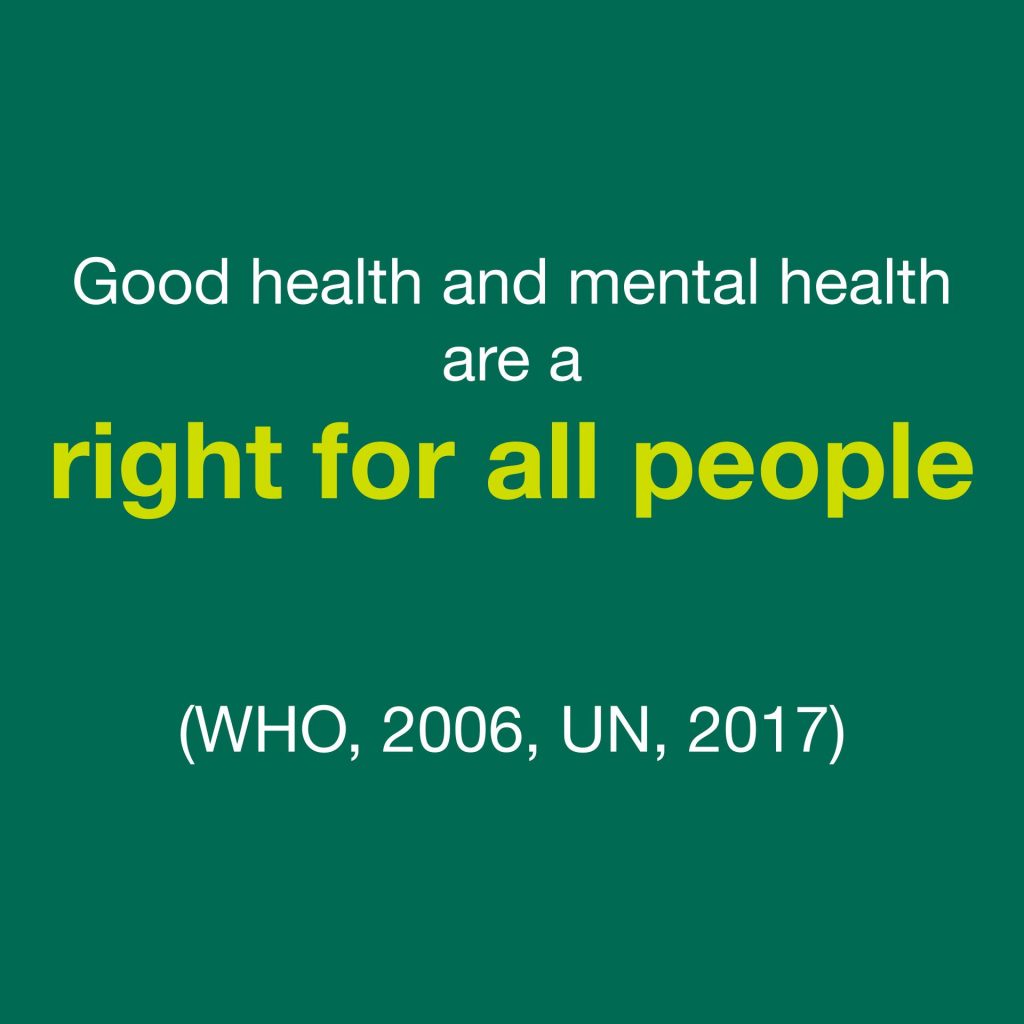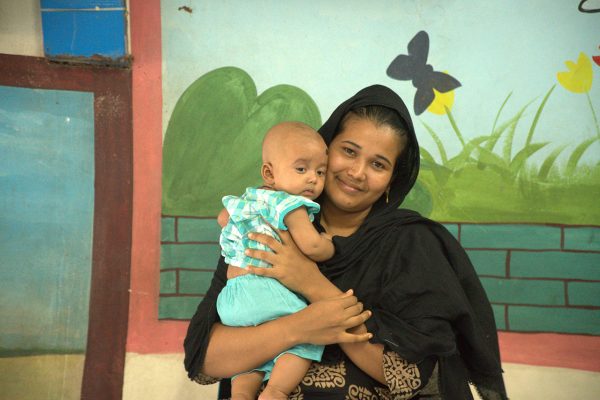Culture, compassion and communities: A mental health strategy uniquely for Bangladesh
Reading Time: 4 minutes
As Bangladesh weathers the most challenging time of this generation – the COVID-19 pandemic – mental health and wellbeing has become more important than ever. BRAC is committed to enhancing community wellbeing through tackling stigma and increasing access to mental health services through culturally appropriate and compassionate approaches.
Mental health refers to the emotional, psychological, and social wellbeing of people and communities, and is the interaction between psychological, biological, social and environmental factors. Good mental health is an enjoyment of life, the ability to manage hardship and stress, having goals and fulfilling potential, and having good relationships. We all have mental health, ie, a state of mental wellbeing, in every stage of life – from birth to old age. It affects how we think, feel, and behave, and influences how we relate to others, manage stress, and make choices.

Mental health is not a fixed state, because every day and throughout our lives we are on a continuum – where we can feel different emotions or feelings. We can experience joy, contentment, and hope, as well as more difficult experiences, such as loss, rejection, anxiety, sadness and trauma. Difficult emotions can leave us feeling hopeless and stuck in situations that feel confusing, harmful and painful. It is also possible that we are functioning well in some areas of life (such as work), while simultaneously struggling in other areas (such as relationships). Thinking about mental health as being on this continuum is important because it shows why we must simultaneously focus on both the reduction of mental distress and the improvement of mental wellbeing. The COVID-19 pandemic has highlighted how external situations can leave us with difficult and confusing feelings, without many opportunities to make helpful changes.
In August 2021, BRAC launched its first Mental Health Strategy, in alignment with the Government of Bangladesh’s National Mental Health Strategy (2021) and Strategic Plan (2021). BRAC’s founder Sir Fazle Hasan Abed believed mental health and wellbeing was a crucial and overlooked component of public health. Now, particularly against the backdrop of COVID-19 and the toll it has taken on our mental wellbeing, it is time to work together to improve access to mental health services in Bangladesh.
BRAC’s mental health strategy holds three core value assumptions about the mental health in a population:
- Every person has mental health and is going to experience mental distress at some point in their lives.
- Each person has a different experience of the world based on their culture. These different experiences and expressions of distress need to be recognised, valued, and respected.
- Respectful, valuing, and compassionate approaches should be rooted in all mental health activities.
Read more: Three ways BRAC creates a mental health-friendly workplace
The strategy aims to comprehensively raise public awareness on mental health, tackle stigma, and provide communities with high quality and culturally appropriate need-based mental health interventions through trained professionals. BRAC already has experience working in this field, with its innovative para-counselor model, in the Rohingya camps and host communities in Cox’s Bazar. Services will now be included in BRAC’s primary health care services and gradually expanded across Bangladesh to be accessible for all
“When the time comes, we all might need someone to listen to us without any judgement. Our para-counselors are those allies, whom we can talk to; share our pain and suffering; express our anger and grief, and finally find some peace of mind.” – Dr Morseda Chowdhury, Director, Health, Nutrition and Population Programme, BRAC
Watch this video on our para counsellors working on the ground.
Why is culture important in mental health and wellbeing?
Our lives and wellbeing are deeply influenced by our culture, a social context in which we experience life from birth. Culture also shapes how we express ourselves and how we describe and manage our distress. It can be defined by a combination of identities such as nationality, sexuality, gender, social class, etc. The recognised and globally influential models of mental health have been developed in cultures that are very different from Bangladesh, such as Europe or the US, a phenomenon known as eurocentrism.
What is important to consider is that each of us has a unique experience of life, that will influence what meanings we make about the things that we experience. BRAC’s mental health strategy recognises that Bangladesh needs culturally compatible mental health models and services, so that the unique needs of the population are met.
“We did not call it mental health, but over 49 years we connected with communities, supported and gave people hope, and ensured their dignity. It is a moment of celebration that we have been able to build on our work and articulate the first mental health strategy for BRAC.” – Dr Erum Mariam, Executive Director, BRAC Institute of Educational Development (BRAC IED), BRAC University.
Read more: ‘Sisters of peace’: The women supporting mental health in Bangladesh’s Rohingya camps
The importance of compassion – it starts with us.
Research has shown, regardless of culture or context, what always helps us to feel supported when we feel helpless and vulnerable is compassion. Compassion is defined as our feelings towards another person’s suffering and our motivation to relieve that suffering. A great example of compassion would be the immediate response of the local communities of Cox’s Bazar in Bangladesh towards the Rohingya in 2017.
The needs are common when it comes to needing care and support. Think for a moment about what you needed when you felt vulnerable and in distress? What helped you to overcome it? It is likely that being cared for and listened to in a respectful way will be at the top of your list. A combination of compassion, connection with others and a sense of hope and purpose for the future is what helps us to feel better. We all can be part of a society that is more caring and supportive by showing and extending compassion towards others ourselves; because when we feel seen, valued, and cared for within our social systems, we can ensure the same for others.
Read more: How BRAC Microfinance provides mental health support to their field staff
BRAC is integrating mental health in its primary healthcare services, to provide people with community-based, culturally-relevant and ethical mental health support, using the experience of providing psychosocial support through para counsellors. 444 trained para counsellors from BRAC are currently working in the community to address mental health challenges in Bangladesh.
To learn more about BRAC’s approach in mental health visit the website. Find more blogs on what BRAC is doing through health interventions on The Good Feed.
Dr Nargis Islam is a Consultant Clinical Psychologist for BRAC IED, lead author of BRAC Mental Health Strategy, and is based in Oxford, UK.
Cover photo: Esther Goh and Jonathan Han © BRAC





